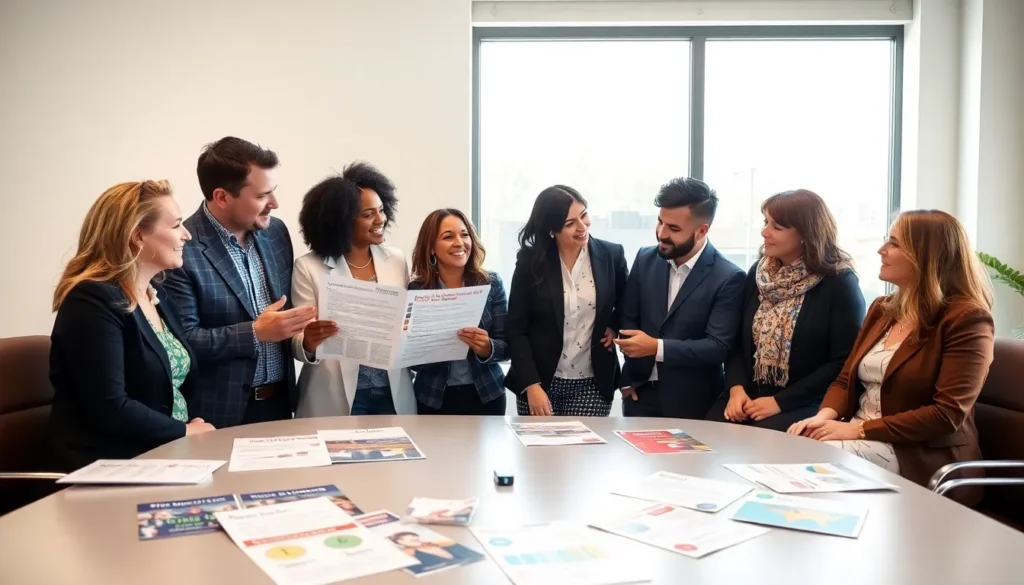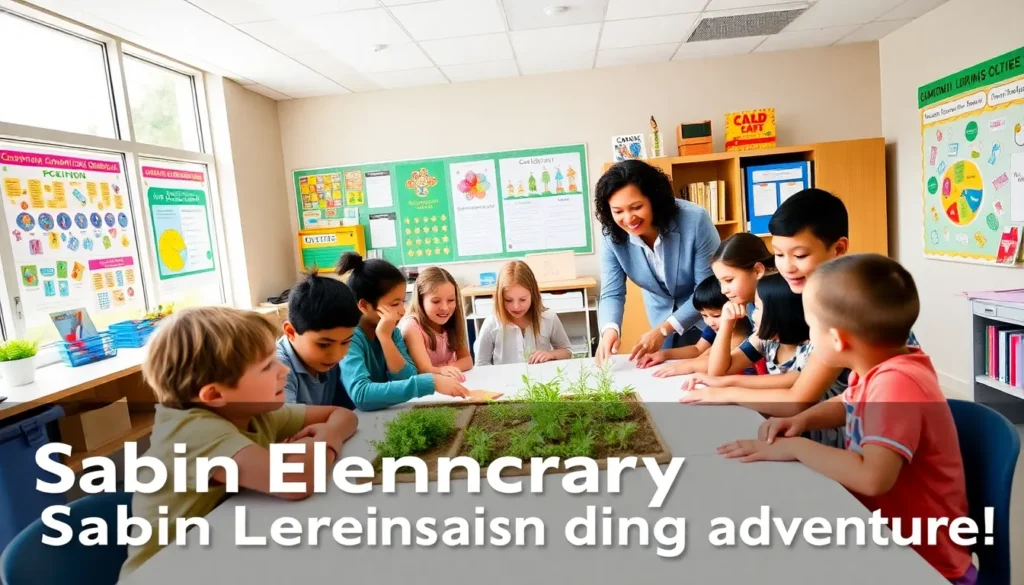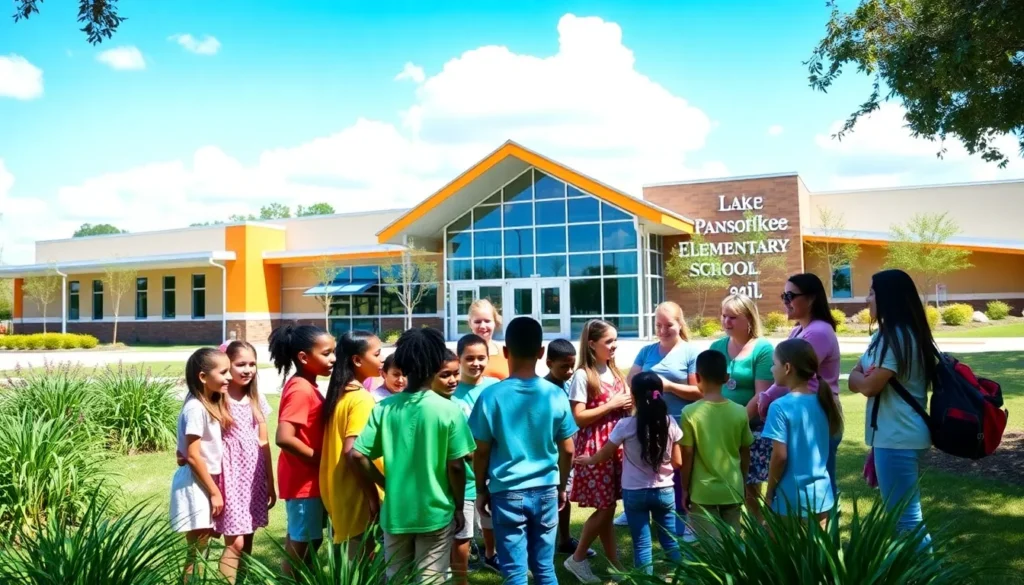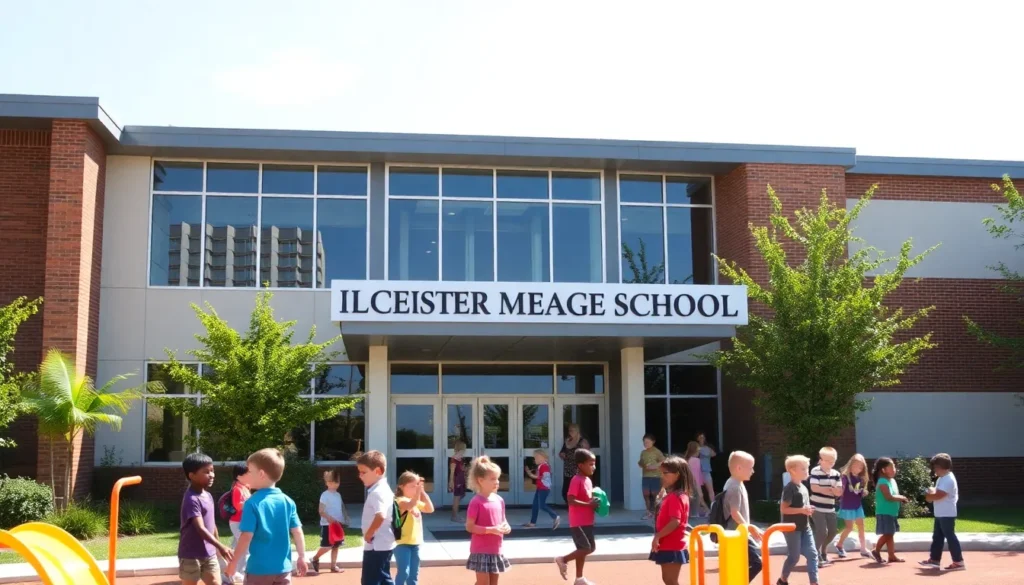In recent years, the autism acceptance community has emerged as a powerful force advocating for understanding and inclusion. This vibrant community challenges outdated perceptions and promotes the idea that neurodiversity should be celebrated rather than merely tolerated. By fostering connections among individuals on the autism spectrum and their allies, it creates a supportive environment where everyone can thrive.
The movement emphasizes acceptance over mere awareness, encouraging society to embrace the unique strengths and perspectives that autistic individuals bring. As more people join this growing community, the conversation around autism shifts from stigma to celebration, paving the way for a more inclusive future. Understanding the significance of this community is essential for anyone looking to contribute positively to the lives of autistic individuals.
Table of Contents
ToggleUnderstanding Autism Acceptance
Autism acceptance focuses on recognizing and valuing autistic individuals for who they are. This movement advocates for inclusivity and understanding, shifting perspectives from mere awareness to genuine acceptance.
What Is Autism Acceptance?
Autism acceptance involves embracing autistic identities and promoting their rights. Individuals within the autism acceptance community encourage the following principles:
- Respect for Autistic Voices: Listening to and prioritizing the perspectives of autistic individuals.
- Celebration of Neurodiversity: Acknowledging that neurological differences, including autism, contribute to human diversity.
- Empowerment: Supporting autistic individuals in asserting their rights and autonomy.
The Importance of Acceptance
- Enhanced Mental Health: Acceptance fosters a sense of belonging, significantly reducing feelings of isolation and anxiety.
- Promoting Lifelong Learning: Acceptance encourages environments where autistic individuals can thrive academically and socially.
- Strengthening Community Bonds: Acceptance helps to build connections between autistic individuals and their allies, creating supportive networks.
The Role of the Autism Acceptance Community

The autism acceptance community serves as a vital force for inclusion and understanding among autistic individuals. It promotes a shift in societal attitudes from mere awareness to meaningful acceptance, focusing on the strengths of those on the spectrum.
Core Values and Beliefs
Core values of the autism acceptance community include:
- Respect: Autistic voices receive priority in discussions about their experiences and needs.
- Neurodiversity: Celebrating the diverse range of neurological conditions embraces the uniqueness of each individual.
- Empowerment: Autistic individuals are encouraged to assert their rights and advocate for themselves.
These principles foster a culture of understanding, challenging misconceptions and outdated views. The community emphasizes belonging, encouraging supportive environments for autistic people and their allies.
Advocacy and Awareness Efforts
Advocacy and awareness efforts conducted by the autism acceptance community include:
- Campaigns: Awareness campaigns utilize social media platforms to spread messages of acceptance and education.
- Workshops: Educational workshops equip families, teachers, and employers with tools to support autistic individuals effectively.
- Collaborations: Partnerships with various organizations promote inclusion in workplaces, schools, and communities.
These initiatives challenge stereotypes, elevate awareness, and create a more inclusive society. By focusing on acceptance, the community influences policies and practices that benefit autistic individuals and allies alike.
Key Organizations in the Autism Acceptance Community
Several key organizations play pivotal roles in promoting the principles of the autism acceptance community. These entities strive to enhance understanding and support for autistic individuals and their families.
Notable Nonprofits and Groups
- Autism Self Advocacy Network (ASAN): ASAN is a nonprofit organization run by and for autistic individuals. It empowers autistic people to advocate for their rights and promote acceptance across various platforms.
- Neurodiversity Hub: This organization emphasizes neurodiversity and offers resources for autistic individuals, families, and communities. It provides educational materials and promotes inclusion in various settings.
- Autistic Women & Nonbinary Network (AWN): AWN focuses on the experiences of autistic women and nonbinary individuals. It advocates for their unique needs and offers support through community engagement and networking.
- Autism Society: With a national presence, the Autism Society works on local and national initiatives aimed at improving the quality of life for autistic individuals. They provide information, advocacy, and community resources.
- The Autism Community in Action (TACA): TACA serves families affected by autism, offering support and education on navigating autism services. Its mission centers on enhancing life through community connections.
Community Initiatives and Programs
- Peer Support Networks: Local peer support groups connect autistic individuals and their allies to foster relationships. These networks provide safe spaces for sharing experiences and resources.
- Workshops and Educational Programs: Various organizations offer workshops to educate families, educators, and community members about autism acceptance. These programs focus on respectful communication, advocacy skills, and promoting neurodiversity.
- Advocacy Campaigns: Community-led campaigns raise awareness of autism acceptance and challenge stereotypes. These initiatives often leverage social media to spread messages of acceptance and understanding.
- Inclusive Events: Events such as conferences, seminars, and community fairs promote interaction and learning. They feature speakers, panels, and activities that celebrate neurodiversity and educate attendees.
- Collaborative Efforts: Partnerships between organizations enhance resource availability. Collaborative projects often target specific issues, such as improving accessibility in various environments.
These organizations and initiatives work together to build a more accepting society for autistic individuals, enriching their lives and promoting their rights.
Personal Stories and Experiences
The autism acceptance community thrives on personal narratives that illuminate diverse experiences within its members. These stories not only foster connection but also provide insights into the realities faced by autistic individuals and their families.
Voices from the Community
Voices from the community reflect the importance of representation and understanding. Autistic individuals share their experiences navigating societal challenges while advocating for their needs. For instance, individuals like 25-year-old Sarah, who identifies as autistic, express the profound impact of acceptance from family and friends. She highlights how supportive environments enabled her to embrace her identity and pursue her passions. Similarly, community members participate in storytelling forums, sharing how acceptance has transformed their lives, emphasizing self-advocacy, personal growth, and confidence.
Impact on Families and Individuals
Families play a crucial role in the autism acceptance journey. Parents, such as Mark and Lisa, recount the challenges of early diagnosis and the journey toward understanding their child’s unique needs. Their stories illustrate the transformative power of community resources and acceptance in aiding their child’s development. Additionally, siblings provide insights into their experiences growing up alongside their autistic brothers and sisters, fostering mutual respect and understanding. These narratives showcase the support networks that evolve within the autism acceptance community, ultimately enabling families to thrive together.
Challenges Facing the Autism Acceptance Community
The autism acceptance community faces several significant challenges that hinder its mission for understanding and inclusion. Addressing these challenges is essential for fostering a more inclusive society where autistic individuals can thrive.
Societal Misconceptions
Societal misconceptions about autism continue to pose major obstacles. Many individuals equate autism solely with deficiencies, rather than recognizing strengths and unique perspectives. Stereotypes often portray autistic individuals as socially inept or incapable of meaningful communication, which misrepresents their realities. These misconceptions lead to misunderstanding and stigma, further isolating autistic individuals from society. Increased education around autism’s diverse manifestations can help combat these misconceptions and promote a more nuanced understanding.
Barriers to Inclusion
Barriers to inclusion significantly affect autistic individuals’ opportunities in various areas, including education, employment, and social engagement. In educational settings, traditional teaching methods often overlook the specific learning styles of autistic students, leading to disengagement and underperformance. In the workplace, hiring practices frequently disadvantage those on the autism spectrum, as employers may not recognize their potential contributions. Furthermore, lack of awareness surrounding accommodations creates challenges in social environments, making it difficult for autistic individuals to form connections. Promoting inclusive practices and fostering understanding among educators and employers is vital for dismantling these barriers.
The autism acceptance community stands as a beacon of hope and progress. By prioritizing understanding and inclusion it reshapes the narrative around autism. This movement encourages society to embrace neurodiversity and recognize the unique strengths of autistic individuals.
As the community continues to grow it fosters connections that empower individuals and their families. The collective efforts of organizations and advocates work tirelessly to dismantle misconceptions and promote acceptance. Personal stories and shared experiences highlight the transformative power of support and understanding.
Building a more inclusive society is a shared responsibility. By embracing the values of the autism acceptance community everyone can contribute to a future where autistic individuals thrive and their voices are celebrated.









